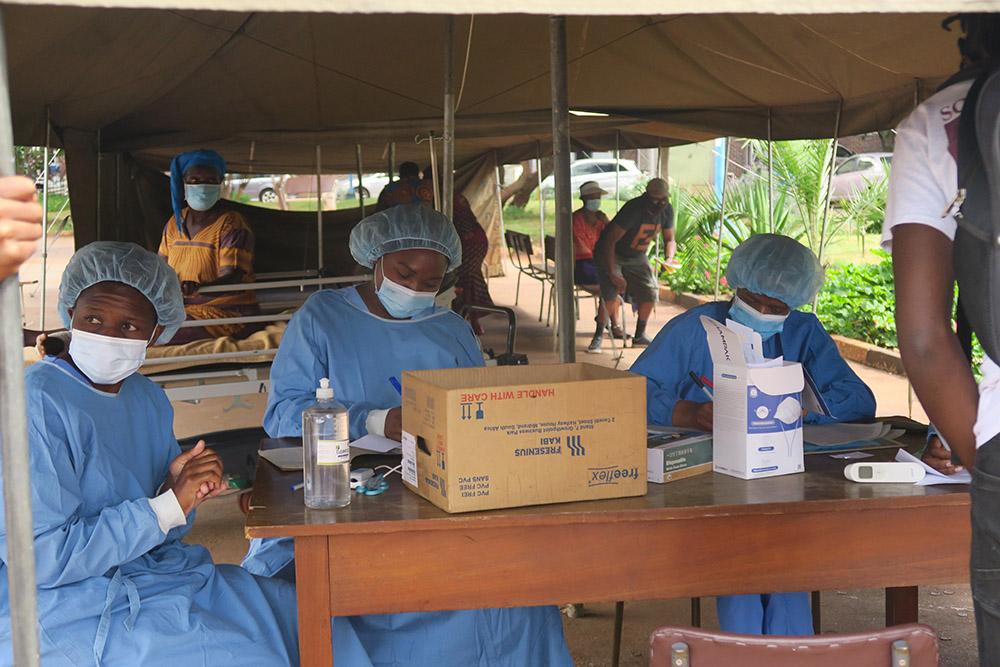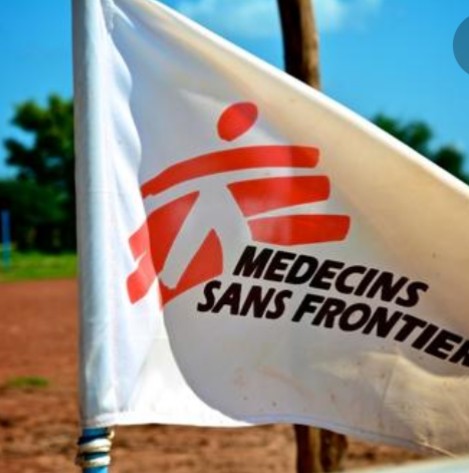By Doctors Without Borders (MSF)
Following a recent spike in COVID-19-related cases and deaths, Zimbabwe’s already struggling health system is buckling under the pressure. In several facilities, health workers are operating without adequate PPE, medication, equipment and oxygen and, with an existing and ongoing shortage of nurses and doctors, most health centres are unable to operate at full capacity, putting added pressure on those who are able to work.
With the anticipated continuation of surges in COVID-19 cases, appropriate preventative and preparative measures must be put in place in order to adequately manage the situation and avoid a crisis.
The sudden escalation of COVID-19 cases and fatalities in January was likely a result of increased travel during the December holiday season, the opening of the Beitbridge border post (a bustling entry point between Zimbabwe and South Africa) and the second COVID-19 wave in the Southern Africa region.
In early January, Zimbabwe experienced a peak in COVID-19 numbers, with 1,365 confirmed cases and 34 deaths being recorded in one day, according to WHO, representing the highest number recorded since the onset of the pandemic. In the month of January alone, Zimbabwe recorded more new cases (19,521) than in the entirety of 2020, raising the total number of confirmed cases to 33,388 by February 1.
“Patients were turned away as hospitals ran out of capacity to cope with escalating infections and deaths. Additionally, staff were concerned about their own health and safety, as there were no adequate PPE supplies,” says MSF Zimbabwe Emergency Coordinator, Herbert Mutubuki.
While cases and fatalities have significantly reduced in the last couple of weeks (1,216 new cases and 126 deaths were recorded in the first week of February according to WHO), MSF is providing support to Parirenyatwa Hospital Isolation Centre, the country’s main referral unit for COVID-19, in Harare, to help them prepare for the next potential surge in COVID-19 infections.
“Our support is based on the needs assessment we have undertaken and includes increasing the hospital’s capacity to manage admitted cases,” says Mutubuki. “MSF aims to improve infection prevention and control (IPC) measures, improve the flow of patients and staff for outpatient care, and tackle shortages of PPE, essential medicines and medical supplies. Additionally, MSF has recruited and deployed medical staff to support the hospital.”
MSF Nursing Activity Manager Shingairayi Mawarire believes that keeping health care staff motivated is key to ensuring the success of the intervention. “Low morale is a major challenge, and it affects the support that we get from government health workers. So, at Parirenyatwa, we are contributing food for health workers in the high-risk ‘red zone’ and providing additional training where necessary,” she says.
Since the beginning of the COVID-19 pandemic and the first lockdown, Zimbabwe has adopted a multi-pronged approach to managing the pandemic through the formation of eight pillars to better coordinate, communicate and manage cases, which MSF has been involved in implementing.
Zimbabwe, like most lower-middle-income countries, is only likely to receive significant quantities of the COVID-19 vaccines later in the year, so further preventative measures are urgently required. What the country experienced in January should serve as a serious reminder to government entities working to deliver health services and other stakeholders in the health sector that COVID-19 is far from over. Health facilities remain in desperate need of resources.
While MSF’s COVID-19 intervention in Zimbabwe is currently a short-term project, MSF will extend support measures if necessary, depending on the evolution of the pandemic in the coming months.






